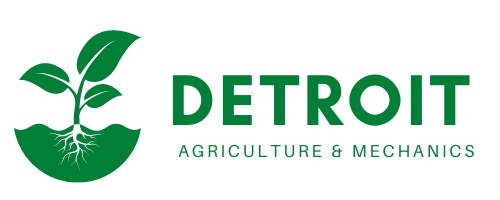Operations and Management:
Organizational Structure and Key Personnel: Detroit A&M operates under a well-defined organizational structure to ensure efficient operations and effective management. The key personnel involved in running the institution include:
- President/CEO: Responsible for overall strategic direction, overseeing operations, and managing external relationships.
- Academic Dean: Oversees the academic programs, curriculum development, and faculty management.
- Department Heads: Lead the various academic departments, ensuring smooth functioning and quality education delivery.
- Farm Manager: Manages the agricultural farm operations, including micro-green production, resource management, and maintenance of facilities.
- Administrative Staff: Supports the day-to-day operations, including admissions, student services, finance, and human resources.
Facilities and Resources: Detroit A&M requires several facilities and resources to support its operations effectively. These include:
- Academic Buildings: Equipped with classrooms, laboratories, and specialized workshops to facilitate hands-on training and theoretical instruction.
- Agricultural Farm: A 50×100 foot steel building housing the micro-green farm, equipped with vertical farming systems, irrigation systems, lighting, and climate control.
- Administrative Offices: Space for administrative staff to manage admissions, student services, finance, and other administrative functions.
- Library and Learning Resources: A library with relevant books, journals, and online resources, as well as computer labs for research and study.
- Equipment and Tools: State-of-the-art equipment and tools necessary for training in skilled trades, agriculture, and mechanics.
Quality Control Measures and Safety Protocols: Detroit A&M prioritizes quality control and safety to ensure the well-being of students, faculty, and staff. Some key measures include:
- Curriculum Review: Regular review of academic programs and courses to ensure relevance, industry alignment, and high educational standards.
- Faculty Development: Continuous professional development and training for faculty members to enhance teaching skills and stay updated with industry trends.
- Facility Maintenance: Regular maintenance and inspection of facilities, including the agricultural farm, to ensure optimal functioning and safety.
- Safety Protocols: Implementation of safety protocols and procedures to minimize risks in workshops, laboratories, and other hands-on training areas.
- Compliance with Regulations: Adherence to local, state, and federal regulations related to education, safety, and agricultural practices.
By maintaining a strong organizational structure, utilizing necessary facilities and resources, and implementing stringent quality control and safety measures, Detroit A&M ensures smooth operations and provides a conducive learning and working environment for its students, faculty, and staff.
